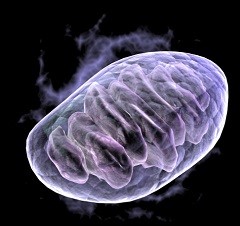-
VISTA is a new negative checkpoint regulator, homologous to PD-L1, that potently suppresses T cell activation.
-
P-selectin glycoprotein ligand-1 (PSGL-1), expressed on leukocytes, is a new receptor for the immune checkpoint VISTA.
-
VISTA binds PSGL-1 at acidic pH 6.4, but not at physiological pH 7.4.
-
VISTA - PSGL-1 interaction shows that immune response can be regulated by acidic environments found in tumors.
|
|
NEW VISTA Receptor PSGL-1
PSGL-1 (human):Fc (human) (rec.)
AdipoGen Life Sciences developed a new PSGL-1 recombinant protein for VISTA and Immuno-Oncology Research. PSGL-1 (human):Fc (human) (rec.) (Prod. No. AG-40B-0190) is produced in HEK 293 cells. AdipoGen Life Sciences' multimeric VISTA, the VISTA (human):COMP (mouse) (rec.) (His) (Prod. No. AG-40B-0183) binds PSGL-1 at acidic pH 6.4, but not at the physiological pH 7.4. The VISTA-PSGL-1 interaction shows that immune response can be regulated by acidic environments found in tumors. Therefore, the low endotoxin levels and tested biological activity of PSGL-1 and VISTA recombinant proteins make them unique tools to study the VISTA-PSGL-1 pathway and its antitumor activity.
Inquire for attractive BULK prices for extensive studies.
|
|
Potent VISTA Multimeric Recombinant Protein
VISTA (human):COMP (mouse) (rec.) (His)
The recombinant VISTA protein needs to be multimerized to be active as soluble ligand. The protein VISTA (human):COMP (mouse) (with the extracellular domain of VISTA (human) fused to the pentamerization domain from the mouse cartilage oligomeric matrix protein (COMP)), but not VISTA-Fc, functions as an immunosuppressive agonist in vivo inhibiting the proliferation of CD4+ T cells. AdipoGen Life Sciences developed and validated in-house the new multimeric VISTA (human):COMP (mouse) protein (Prod. No. AG-40B-0183).
|
|
Cancer cells undergo metabolic reprogramming to become highly glycolytic even in the presence of oxygen, by upregulating glycolysis, glutamine decomposition and lipid metabolism. These metabolic changes are essential for malignant proliferation, invasion and metastasis. Additionally, cancer cells, through their metabolites, inhibit the activation of immune cells by modulating their metabolism (immunometabolism) to indirectly promote cancer growth. Thus, understanding the regulation of tumor-induced metabolic stress on immune cells is helpful to improve anti-cancer metabolic immunotherapy.
AdipoGen Life Sciences offers a broad range of Cell Metabolism & NAD+ Metabolism Reagents, including modulators of Glycolysis, TCA Cycle, Fatty Acid Oxidation, Fatty Acid Synthesis Pathway and Amino Acid Pathways, inhibitors of IDO1 and Nampt and active enzymes, such as Arginase I, IDO1 and Nampt.
|
 |